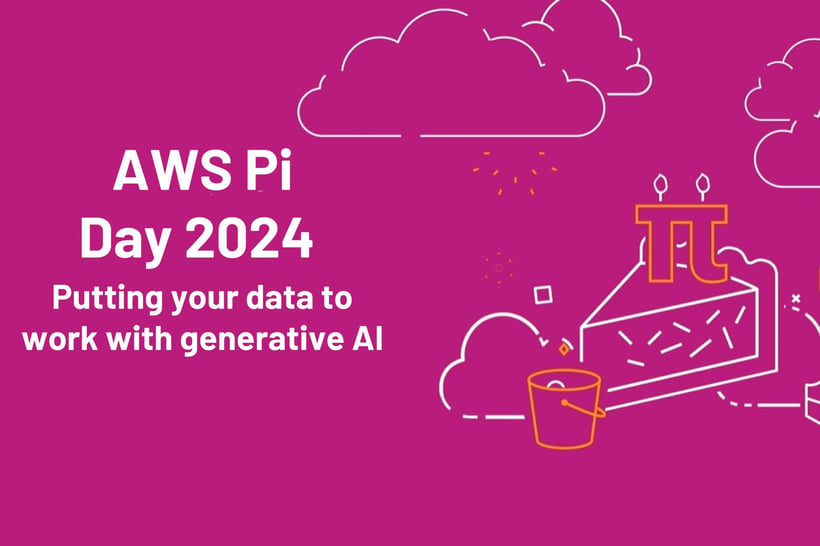
On March 14, 2024, AWS along with its partners and customers celebrated AWS Pi Day, which marked the 18th birthday of their first generally available service, Amazon Simple Storage Service (Amazon S3).
Since its release in 2006, Amazon S3 and the circumstances surrounding it have changed drastically. We’ve witnessed the release of over 100 other AWS services and watched as the cloud transformed the world of business. Now, we are seeing something similar with the advent of Generative Artificial Intelligence (GenAI), which was this year’s focus for AWS Pi Day. Let’s review the most notable highlights and announcements of Pi Day.
What We Learned
The four-hour event, streamed live at AWS onAir (Twitch), was filled with interesting conversations with leaders at AWS and product demonstrations. The main theme focused on Amazon SageMaker and Amazon Bedrock, AWS’ flagship GenAI-focused services.
Amazon SageMaker is a fully managed service that brings together a broad set of tools to enable high-performance, low-cost machine learning (ML) for any use case. The service allows organizations to build, train, and deploy ML models at scale using tools like notebooks, debuggers, profilers, pipelines, MLOps, and more, all from a singular integrated development environment (IDE).
Amazon Bedrock is a fully managed service that offers a choice of high-performing foundation models (FMs) from leading companies like AI21 Labs, Anthropic, Cohere, Meta, Mistral AI, and more, via a single API, along with a broad set of capabilities you need to build generative AI applications with security, privacy, and responsible AI.
These services make it easy to build, train, and refine a variety of ML models using the data within the AWS storage services you already likely use. In fact, the data used within many of the product demonstrations throughout the event were pulled live from repositories such as Amazon FSx filesystems, data lakes and Amazon S3 buckets.
The second theme of the event was AWS initiatives to allow customers to make their existing data architecture and data pipelines work with GenAI. Given that the data within data lakes and Amazon S3 are good starting points to build GenAI applications, new features that aid in quick and efficient data transfer such as Amazon S3 Express One Zone and vector storage/retrieval for Amazon MemoryDB for Redis, Amazon Neptune, and Amazon DocumentDB were covered in detail.
The final theme covered how you can be your own best auditor. Over the past few months, AWS has expanded their commitment to responsible AI by introducing connections to numerous services such as Amazon CloudTrail, Amazon CloudWatch, and OpenSearch to govern and monitor data usage.
Looking Forward
Cloud Storage Security (CSS) is excited about AWS’ past and future initiatives to make GenAI both cheaper and more accessible to organizations looking to leverage the productivity gains and insights that it can provide. As more organizations build GenAI applications on AWS storage they need to remember that it is important to validate the security of the data that’s used to train models.

%20(3)-1.png?quality=high&width=1900&height=1250&name=CSS%20-%20Blog%20(Featured%20Images)%20(3)-1.png)
%20(1).png?width=2000&height=1125&name=CSS%20-%20Blog%20(Featured%20Images)%20(1).png)


%20(3)-1.png?width=387&height=258&name=CSS%20Webinar%20Thumbnails%20(750%20x%20750%20px)%20(3)-1.png)

